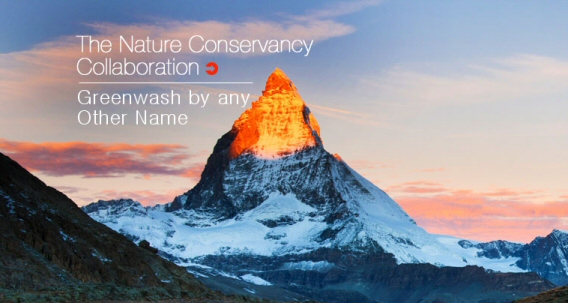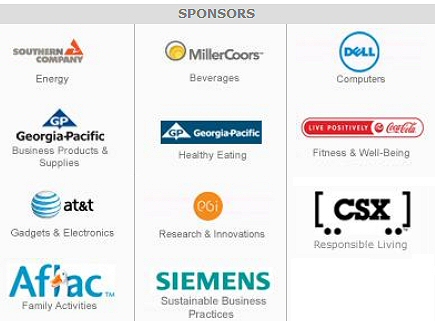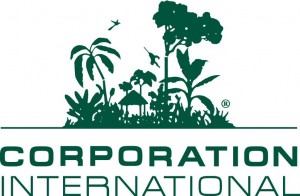WWF Denies Palm Oil is the Problem, then Counts the Cash
Posted by keith on 23rd November 2011
It seems there is no depth to which the corporate world’s own favourite NGO, WWF, will not sink. An article in this week’s Guardian was happy to give WWF some free publicity, implying that the group actually give a stuff about the wildlife they were apparently set up to protect (or simply to ensure there is enough to shoot, as some sources suggest). The Palm Oil industry is growing month on month as new swathes of rainforest and other critical habitat are razed to the ground. According to Rainforest Action Network:
Approximately 85 percent of palm oil is grown in the tropical countries of Indonesia, Malaysia and Papua New Guinea (PNG) on industrial plantations[3] that have severe impacts on the environment, forest peoples and the climate.
The Indonesian government has announced plans to convert approximately 18 million more hectares of rainforests, an area the size of Missouri, into palm oil plantations by 2020
This is just on current growth in demand, but just you wait what happens when conventional oil supplies start drying up and biofuel demand starts shooting through the roof. No more rainforests.
So, what do WWF think of the palm oil situation?
“Palm oil itself is not the issue,” [Adam] Harrison [of WWF] noted. “The problem is how and where palm oil is produced.”
Oh, I see. What he is saying is that we can have as much palm oil as we like so long as it’s produced in the right way. Let’s put that into context by quoting from the article some more:
The WWF’s Palm Oil Buyers’ Scorecard, published on Tuesday, rates 132 mainly European companies, 29 of which received full marks, including 15 from UK such as Cadbury, Boots and Waitrose. No company achieved that level in the last scorecard report in 2009. At the bottom of the 2011 list are big retailers like Aldi, Lidl and Edeka from Germany, who refused to answer any questions about their palm oil policies.
“In the UK in particular we see progress,” said Adam Harrison, palm oil expert at WWF UK. “Due to several campaigns highlighting the damage caused by the rapid spread of palm plantations, companies see they are under pressure and respond.”
But he added: “Although there has been some progress on sustainable palm oil, new commitments are simply not translating fast enough into increased use of certified sustainable palm oil.” The report gives Unilever, the world’s biggest buyer of palm oil, 8 out of a possible 9.
Some companies bad, some companies good, apparently. Unilever are are the world’s largest processors of palm oil, so that should instantly put them near the front of the queue for criticism, after all if the companies didn’t put palm oil into their products then it wouldn’t be used, as was the case as little as 10 years ago when “vegetable oil” meant all sorts of different oils that invariably didn’t contribute to the removal of vast areas of rainforest. So how do WWF justify giving a company like Unilever such a brilliant score?
The Palm Oil Buyers’ Scorecard 2011 measures the performance of more than 130
major retailers and consumer goods manufacturers against four areas which WWF
believes show whether or not these companies are acting responsibly in terms of palm
oil use and sourcing:
• Being an active member of the RSPO;
• Making a public commitment to RSPO-certified sustainable palm oil;
• Disclosing how much palm oil they use;
• Showing how much of the palm oil they use is CSPO or is supporting sustainable production.
Let’s break that down a bit:
Being an active member of the RSPO;
The RSPO were founded by a band of palm oil growers, processing giants and WWF. According to WWF’s definition of “sustainable palm oil” the RSPO is the only organisation that has any credence; just like with “sustainable” timber WWF ignores, and positively campaigns against, any certifier other than FSC. WWF’s investment arm is raking in billions of dollars (I have been told this could be in the range of $60 billion for just one standards-based scheme in the Amazon) from the various schemes it oversees and then takes a cut from. The RSPO is just another such scheme: if WWF can convince everyone that this burgeoning market can be made “sustainable” then the potential from their founder member status for making money is enormous.
Making a public commitment to RSPO-certified sustainable palm oil;
The public commitment, along with the branding on products as strongly suggested by WWF, provides further credibility for this pork barrel scheme. No other certification counts, even if the palm oil was produced in an area that always contained oil palm.
Disclosing how much palm oil they use;
This serves to show the extent to which RSPO is cornering the palm oil market. Not just that, the relationship between RSPO members and WWF is a circular one; according to RSPO:
By joining the RSPO, organizations publicly communicate their commitment to sustainable palm oil production and use as well as to raise their reputation as a pro-active, solution-oriented and socially responsible organization. Ordinary Members have the right to vote at the General Assembly and can be elected to represent the relevant sector in the Executive Board by the category in question. They can have access to all materials produced by RSPO for its members, through the RSPO website and newsletter. Ordinary Members have a say in the development of criteria for sustainable palm oil production. They also have the opportunity to network with other companies in the palm oil value chain that share their values. By demonstrating their efforts towards sustainable palm oil, they can thereby improve their access to markets and investment sources.
Become a member, especially a large-scale member, and you can even change the meaning of the word “sustainable”. More importantly, you have access to all that filthy lucre. WWF, of course, get a cut of that filthy lucre.
Showing how much of the palm oil they use is CSPO or is supporting sustainable production.
CSPO means Certified Sustainable Palm Oil (a.k.a. RSPO Certified Palm Oil). Simply put, the more RSPO palm oil you use, the better your score. No matter that the members of the RSPO can manipulate the certification to suit the industry and it is in WWF’s interest to keep the biggest members on the table to ensure the RSPO monopoly is retained. As reported by Rebecca Zhou:
WWF’s Global Forest and Trade Manager Lydia Gaskell says that companies wanting to be certified are given action plans and targets according to ‘the size of the company and how sustainable they are.’
“To take a company off certification for failing to meet standards and criteria is at the very least, impractical,” said Gaskell. “There would be no need for the RSPO if everyone was meeting those principles and standards from day one.”
What really shouts out, though, is the text from WWF’s own report, which demonstrates in black and white how much value they really give to a sustainable future as compared to one in which industry holds sway over everything. They do not not recommend stopping the industrial use of palm oil; instead they look forward to a thriving palm oil future. I recommend a strong stomach if you are to read the following slice of corporate-friendly PR (the emphasis of doublespeak and greenwash is mine) – after which I feel only 5 more words are necessary:
Oil palm yields more oil per hectare of land than any other crop in the world. That is one of the reasons why palm oil makes up more or less a third of the 151 million tonnes of vegetable oil produced worldwide. Its wide availability and low price combined with certain unique characteristics means that it is used in many packaged food and personal care products that line supermarket shelves. Ice cream, margarine, biscuits, cakes, breakfast cereals, soup stock cubes, snacks, ready meals, instant noodles, shampoos, soaps, lipsticks, candles and washing-up liquids—all of these items often contain palm oil that was produced in tropical countries such as Indonesia and Malaysia.
And palm oil is here to stay. Demand is expected to reach 77 million tonnes in 2050 to help feed the world’s growing population and the increased affluence of emerging economies like China and India. And its use may possibly grow even more if demand increases for palm oil as a biofuel.
The thriving palm oil industry also contributes significantly to the well-being of producer countries like Indonesia, Malaysia and Papua New Guinea, and increasingly in the palm oil frontiers of Africa and Latin America. In these countries and regions, the palm oil sector can create employment that helps to lift rural people out of poverty.
Established brands such as ASDA , Carrefour, IKEA, Morrisons, Sainsbury’s and Tesco, that are relatively large users of palm oil (using tens of thousands of tonnes each year) have progressed very well. Medium-sized users such as Co-op Switzerland, Co-operative Group UK, ICA, Marks & Spencer, Migros, Royal Ahold and Waitrose, have also performed well in their size class. Among the small palm oil volume retailers, Axfood, The Body Shop and the Boots Group are ahead of the curve.
There is a second group of retailers that are at the start of their journey and that WWF expects to do better in future Scorecards. These include Casino, Coles Supermarkets, Delhaize Group, E.Leclerc, Kesko Food, Metcash Trading, REWE
Group, the SOK Group and Woolworths.
Unfortunately there is still a large number of companies that are not yet performing as well as they should, and certainly not as well as the Scorecard’s leading companies show is possible.
Disappointingly, 12 out of the 44 retailers scored have still not joined the RSPO, a very basic first step in taking responsibility for the palm oil they use.
…and benefiting WWF’s financial performance.
Posted in Astroturfs, Funding, NGO Hypocrisy, Sponsorship | No Comments »


















